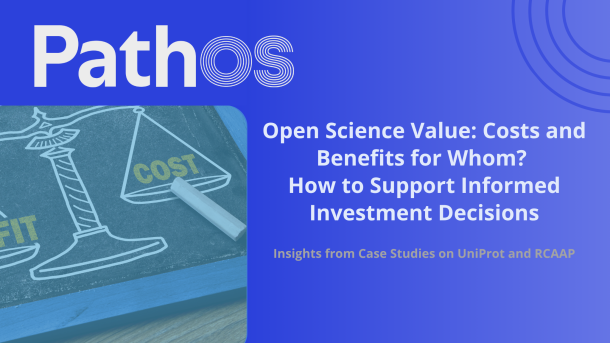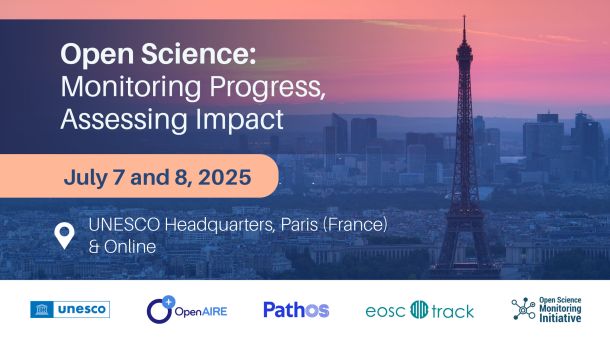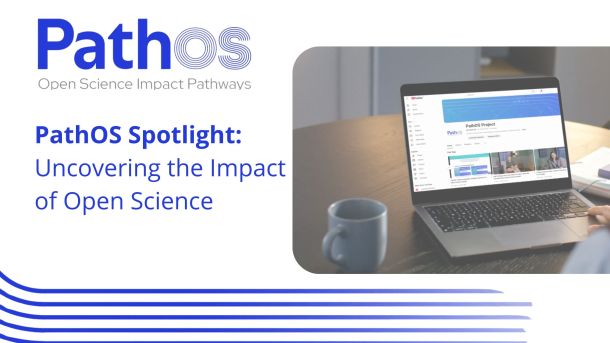How open bioinformatics resources foster innovation in industry; a short interview

Introduction
Small and Medium-sized Enterprises (SMEs) use public-funded open bioinformatics resources (e.g., databases, software, tools, workflows, standards, ontologies, cloud computing, etc) as business models but also, to create innovative added-value products and services that they proceed to sell to larger industry clients. As a result, socioeconomic and societal benefits are generated following impact pathways. PathOS aims to unravel the totality of the impact pathways and shed light on effect of ELIXIR’s activities on fostering innovation in the industry sector, and how this then translates to socioeconomic and societal benefits. A big challenge for the project will be to successfully identify and quantify these benefits!
Why was this particular study selected and how does it contribute to the testing and operationalization of Open Science indicators?
Open Science is a founding principle of ELIXIR – you could say that, as an organisation, we live and breathe Open Science. In practice, it means that the >400 bioinformatics resourcesunder the ELIXIR umbrella can be freely used by almost anyone and anywhere, with an internet connection and the relevant skillset.
Why do you think this is study is important for the broader Open Science context?
Whilst Open Science is often associated to the academic sector, this case study represents a valuable opportunity to look at its effects in an industry context and how the science produced under Open Science principles contributes to innovative solutions with benefits for society and the economy. Practicing and enabling Open Science takes effort, hence it’s important that positive effects are highlighted.
How will this study contribute to the main aims of the project?
Bioinformatics applications have significant societal and economic benefits – these are found in health (e.g., personalised medicine, epidemics monitoring, development of treatments and vaccines), food security (e.g., aquaculture, crop development) and the environment (e.g., biodiversity management, pollution remediation), to name a few. The case study will hence directly contribute to providing evidence to support a better understanding of the implications of Open Science for science, economy and society.
Who are the main actors involved and why are they important within the R&I ecosystem represented in this study?
ELIXIR is among just a few international research infrastructures with a formal industry engagement portfolio that spans all its member countries, and unique in the European landscape with such an extensive set of freely accessible bioinformatics resources. The case study will actively engage, and co-create, with those in ELIXIR who develop and operate bioinformatics resources, industry end-users of these resources, as well as a range of open science and innovation experts within and beyond the project consortium. Strategic engagement with these actors provides crucial information on the impact created by the open nature of ELIXIR resources.
What kind of impact is expected to be generated by the results/outcomes of the study?
Whilst policy-makers and ELIXIR’s public funders generally agree that Open Science is the right approach, they remain keen to better understand how impacts develop and how they can help. This case study will contribute answers to these needs, with an industry angle. Although there is a cost to tax-payers for ELIXIR to develop and operate its bioinformatics resources, which are free at the point of use (even for commercial purposes), we are keen to build a body of evidence showing that the socio-economic and societal benefits far outweigh the costs.
How aware of Open Science is the bioinformatics industry sector? How can they benefit from it?
In the attempt to understand the contribution of Open Data in life sciences’ innovation, ELIXIR performed a study which showed that up to 76% of studied SMEs within the bioinformatics sector would not be able to offer their product without accessing data and other such resources shared on open repositories. This and other studies indicate that industry puts a lot of value on being able to access bioinformatics resources that are open, and the results can really benefit society. A concrete example of the open science value derives from the COVID-19 pandemic, where the first ever approved mRNA-based vaccine for usage in healthy humans was developed by Pfizer and BioNTech (Polack, 2020). In this case, the publicly available viral sequence in the European Nucleotide Archive with the sequence number MN908947.3 was used to evaluate the safety, tolerability, immunogenicity, and efficacy of RNA vaccine candidates against COVID-19 in healthy individuals (BioNTech SE and Pfizer Inc., 2020). Nevertheless, as mentioned in the BY-COVID Industry map report, it is important to understand the players in creating innovative solutions and moving beyond the boundaries of a pharmaceutical company since public health agencies, academic researchers, data infrastructure providers, and public funders are playing an essential role We believe that the multi-stakeholder approach of this project will broaden the bioinformatics industry approach to open science.
The ELIXIR team
 Despoina Sousoni, ELIXIR Industry Officer
Despoina Sousoni, ELIXIR Industry Officer
Despoina joined ELIXIR in 2022 and leads on the industry portfolio by managing a range of engagement activities based on ELIXIR members' needs and EU-funded projects. These activities include support on the Industry Advisory Committee, management of Industry and Innovation Forums and a Knowledge Exchange Scheme between ELIXIR members and industry. Also, among her responsibilities are the enrichment of ELIXIR's industry network, match-making based on related interests, collection of industry use cases and contributions to open innovation.
 Erika Balsyte, ELIXIR External Relations Officer
Erika Balsyte, ELIXIR External Relations Officer
Erika joined ELIXIR in August 2022 and actively contributes to the industry and impact portfolios. Erika supports the operation of the ELIXIR Focus Groups (Impact, Innovation and Industry) managed by the ELIXIR External Relations team. Additionally, she contributes to the ELIXIR’s work to demonstrate its value and impact through the range of indicators. Erika also provides the team with administrative and organisational support while implementing outreach activities to key stakeholders, notably partners from 220+ institutes within ELIXIR, scientists and partners outside the ELIXIR. Her role includes supporting the team on several EU-funded projects, including PathOS.
 Corinne Martin, ELIXIR Senior Impact Officer
Corinne Martin, ELIXIR Senior Impact Officer
Corinne joined ELIXIR in 2018 and leads on two portfolios: impact and international relations. In particular, she works to empower Member countries of ELIXIR in evaluating and communicating the public value of their bioinformatics resources and underlying research infrastructure, in support of long-term sustainability. She also coordinates international relations for France, Australia and the USA, as well as contributing to the organisation’s positioning and visibility with funders, policy-makers and other stakeholders of research infrastructures.
Written by
Latest Articles

Open Science Value: Costs and Benefits for Whom? How to Support Informed Investment Decisions

Press Release: Conference on Open Science: Monitoring Progress, Assessing Impact
